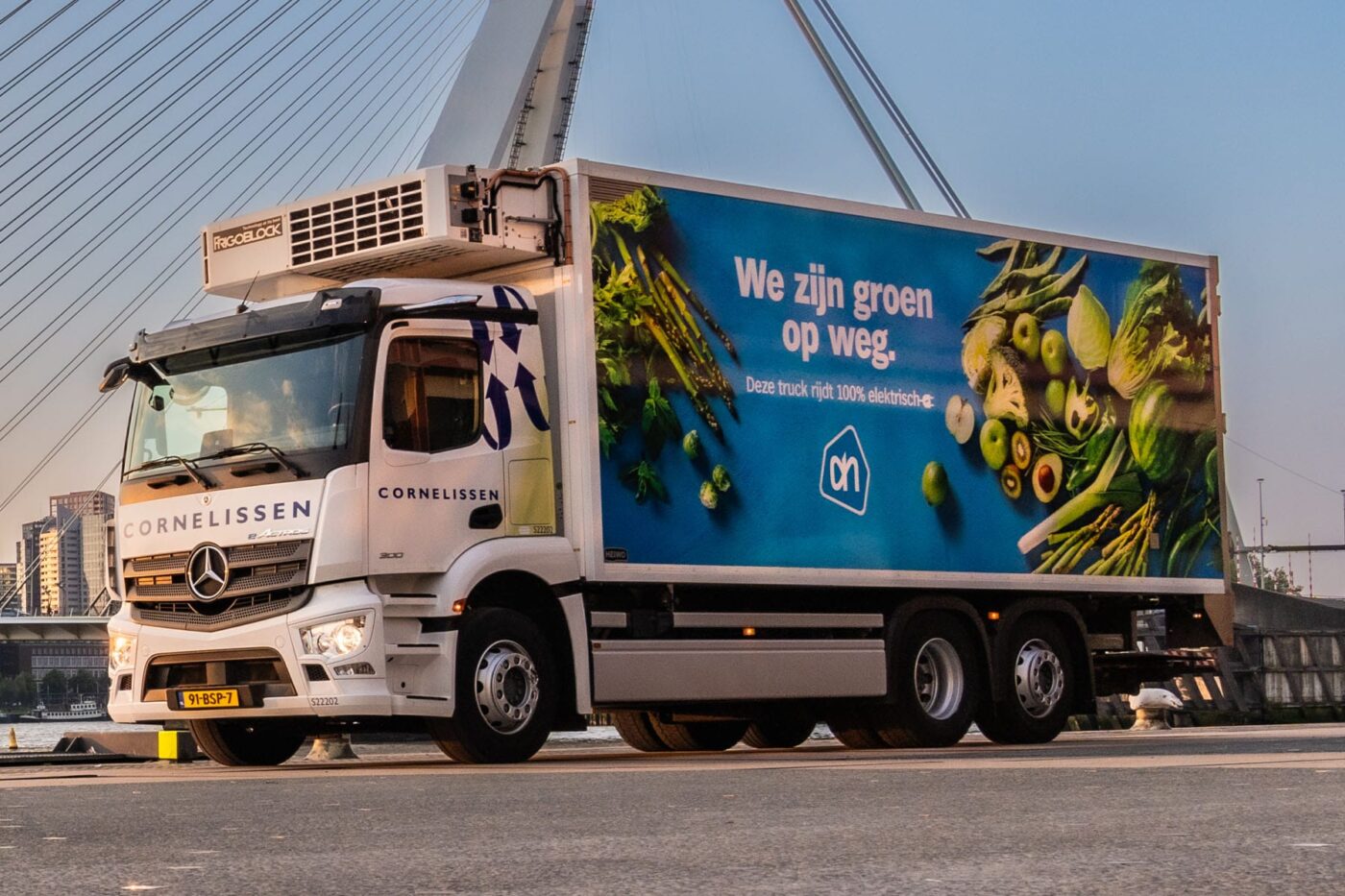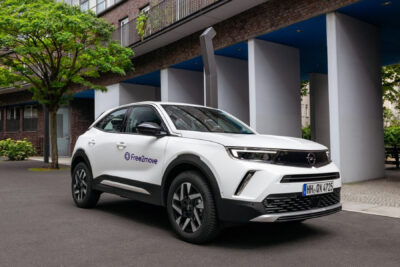Albert Heijn expands electric deliveries in Amsterdam
Albert Heijn has already been making all-electric deliveries in the centre of Amsterdam for just over a year. The area where the shops are supplied with electric trucks now includes the environmental zone, i.e. the shops within the Amsterdam city centre ring road. According to the NL Times, emission-free delivery will be extended to the greater Amsterdam area by 2027.
The company says the current expansion from the city centre to the inner city ring road is due in part to the doubling of charging stations for delivery vehicles in the Home Shop Center (HSC) Amsterdam and the increase in the number of electric trucks to 50, which now operate from the Zaandam distribution centre. Electric trucks thus now serve an area eight times the size of the previous ‘zero-emission zone,’ or ZE for short. In addition to the 82 shops within the city centre ring road, customer orders are delivered using electric vehicles. Albert Heijn states this now amounts to 10,000 customer orders per week.
On top of its efforts in Amsterdam, the company is also pushing ahead with its plan to deliver to all customers and shops in the 29 ZE zones emission-free by the end of 2025. From November 2024, Albert Heijn will expand zero-emission delivery to the ZE zones in the cities of Dordrecht, Zwolle and Deventer. Amersfoort, Assen, Enschede, Nijmegen, Maastricht, Tilburg and Eindhoven will follow at the beginning of 2025, while the ZE zones in The Hague, Rotterdam, Utrecht, Gouda, Leiden and Delft already only use electric vehicles.
“We fill 7 million plates every day, a big responsibility. In order to do this as sustainably as possible, we are investing heavily in electric transport for transporting our products to stores and customers,” says Rob Heesen, director of business development & partnerships at Albert Heijn. He continues: “The step we are taking today in Amsterdam for sustainable transport and reduction of CO2e emissions has a positive effect on the capital.”
However, the political situation in the Netherlands has changed since the recent elections. The new government wants to partially stop or at least delay the expansion of the ZE zones – the plans to ban diesel commercial vehicles in certain urban areas from 2025 have been suspended for the time being. According to the Dutch media, it has led to concerns among companies already investing heavily in environmental protection projects. Although individual cities are sticking to their previous plans, there are no national regulations, such as the signposting of emission-free zones.
Albert Heijn emphasises that it will continue to push ahead with its own plans regardless of the political situation – despite the hurdles in terms of regulations. “It’s challenging that there is no uniform regulation for environmental zones,” Heesen told the NL Times. “This doesn’t help achieve the goals that we and society are striving for. This debate is only delaying progress, and nobody benefits from that. Fortunately, Europe is setting clear boundaries, so it will happen regardless.”





0 Comments